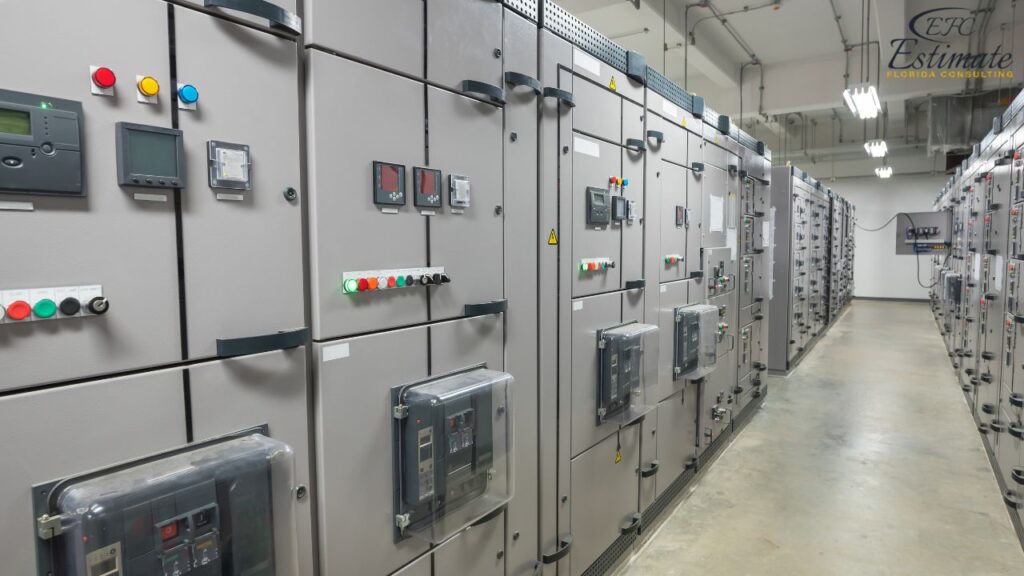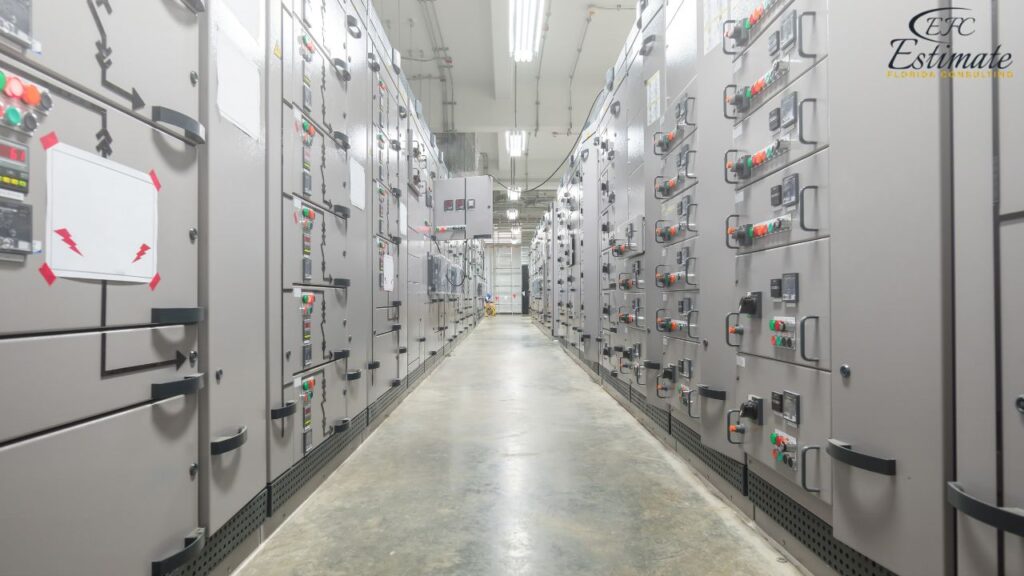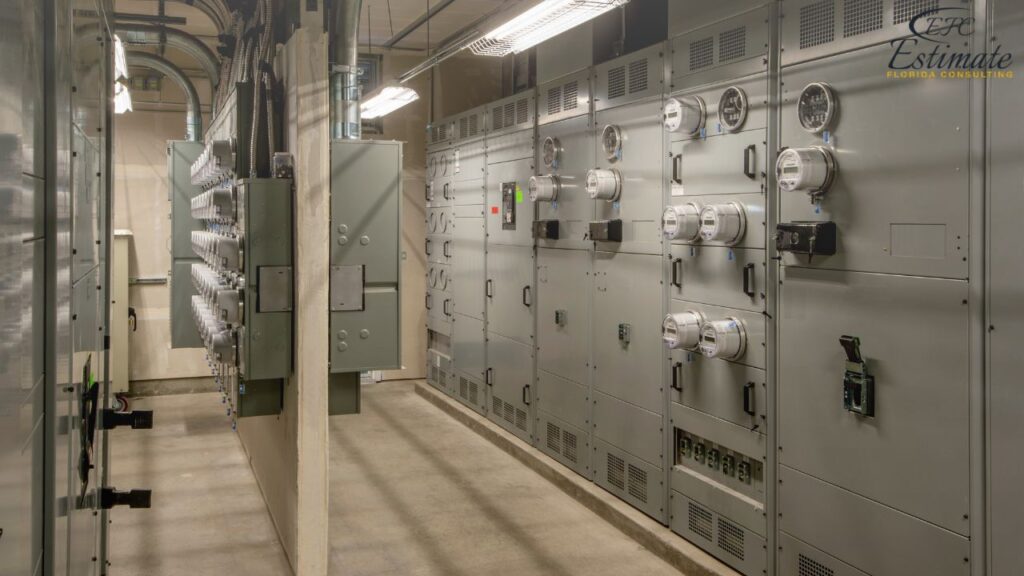Estimator Electrical
Estimating the cost of electrical work is a critical component of any construction or renovation project. Accurate electrical cost estimation helps in setting realistic budgets, securing financing, and ensuring the project stays within budget. This guide provides a comprehensive overview of the factors that influence electrical costs and includes a detailed cost estimator to help you plan your project effectively. Understanding these elements allows stakeholders to make informed decisions, avoid unexpected expenses, and ensure the project proceeds smoothly. Proper electrical planning is essential for the safety, functionality, and efficiency of the entire project.

By anticipating costs early on, you can prevent budget overruns and ensure that every aspect of the electrical system meets the highest standards of performance and safety.
Factors Influencing Electrical Costs
Several factors influence the cost of electrical work. These include the size and complexity of the project, the type of materials used, labor costs, location, and regulatory requirements. Understanding these factors helps in estimating the total electrical cost accurately and planning the project efficiently. Each factor plays a crucial role in determining the overall budget, and careful consideration of these aspects can lead to more effective resource allocation and project management. By thoroughly analyzing these elements, project managers can anticipate potential challenges and develop strategies to mitigate them, ensuring a smoother construction process. This proactive approach helps in avoiding delays and additional costs that can arise from unforeseen issues.
Size and Complexity of the Project
The size and complexity of the project are critical factors in determining the overall electrical cost. Larger projects require more materials and labor, and complex designs or systems increase costs due to additional engineering and specialized installation techniques. Complex projects may also require more time for planning and coordination, further adding to the costs. Each additional layer of complexity, such as integrating advanced technologies or customizing electrical systems, can significantly impact the budget.
The size and complexity of the project are critical factors in determining the overall electrical cost.
Project Size | Cost Range |
Small Projects | $5,600 – $11,200 |
Medium Projects | $11,200 – $28,000 |
Large Projects | $28,000 – $70,000+ |
- Small Projects (up to 2,000 sq ft): $5,600 – $11,200. Small projects typically include single-family homes or small commercial spaces, which are simpler and faster to plan. The reduced complexity of these projects generally means fewer unexpected challenges and a quicker completion time. These projects often involve basic wiring and standard fixtures, making them more straightforward and cost-effective.
- Medium Projects (2,000 to 5,000 sq ft): $11,200 – $28,000. Medium-sized projects often involve more complex designs and additional electrical systems, requiring more detailed planning and coordination. These projects might include multi-family homes, larger commercial spaces, or small office buildings, each with unique requirements and considerations. Medium projects often require integration of advanced systems like HVAC, security, and data networks, increasing both the complexity and cost.
- Large Projects (5,000+ sq ft): $28,000 – $70,000+. Large projects such as multi-unit residential buildings or large commercial facilities involve significant planning efforts and coordination among multiple stakeholders. These projects often require extensive regulatory approvals, detailed engineering designs, and meticulous project management to ensure successful completion. The scale of large projects necessitates a higher level of expertise and more sophisticated electrical solutions, further driving up costs.
Type of Materials Used
The choice of materials significantly impacts electrical costs. High-quality, durable materials often come at a higher initial cost but can reduce maintenance expenses and increase the lifespan of the electrical system. The selection of materials also affects the system’s performance, safety, and energy efficiency. Investing in high-quality materials ensures reliability and longevity, reducing the likelihood of future issues.
The choice of materials significantly impacts electrical costs.

Material Type | Cost Range |
Standard Materials | $1,400 – $3,500 |
Premium Materials | $3,500 – $7,000 |
Luxury Materials | $7,000 – $14,000 |
- Standard Materials: $1,400 – $3,500. Standard materials offer a balance between cost and quality, suitable for most residential and commercial projects. These materials meet basic safety and performance standards and are typically used in less demanding environments.
- Premium Materials: $3,500 – $7,000. Premium materials provide enhanced durability, safety, and performance, often used in high-end residential and commercial projects. These materials are designed to withstand harsher conditions and offer better energy efficiency, contributing to lower operational costs over time.
- Luxury Materials: $7,000 – $14,000. Luxury materials deliver top-tier quality and performance, ideal for upscale projects where superior finishes and long-term value are prioritized. These materials often include advanced technologies and aesthetic enhancements, providing the best performance and appearance.
Labor Costs
Labor costs vary based on the complexity of the project and the location. Skilled labor is essential for ensuring quality electrical installation, and wages can differ significantly from one region to another. Investing in skilled labor can prevent costly mistakes and rework, ensuring the project is completed to the highest standards. Skilled electricians bring expertise that can enhance the efficiency and safety of the electrical installation.
Labor costs vary based on the complexity of the project and the location.

Labor Type | Cost per Hour | Total Cost (for 200 hours) |
Unskilled Labor | $35 – $56 | $7,000 – $11,200 |
Skilled Labor | $70 – $105 | $14,000 – $21,000 |
Electrical Engineer | $105 – $175 | $21,000 – $35,000 |
Total | $35 – $175 | $42,000 – $67,200 |
- Unskilled Labor: $35 – $56 per hour. Unskilled labor is used for basic electrical tasks that do not require specialized skills. These tasks might include simple wiring or installation of standard fixtures under the supervision of skilled electricians.
- Skilled Labor: $70 – $105 per hour. Skilled labor is necessary for tasks that require specific expertise, such as complex wiring, system integration, and detailed finishing. Skilled electricians ensure that all installations meet regulatory standards and perform efficiently.
- Electrical Engineer: $105 – $175 per hour. Electrical engineers oversee the entire electrical system design and installation, ensuring that all aspects of the project are coordinated and completed on time and within budget. They provide critical insights into system optimization and compliance with building codes.
Location
The location of the construction site affects costs due to variations in labor rates and local regulations. Urban areas typically have higher costs compared to suburban or rural locations. The availability of resources and proximity to suppliers also play a role in determining location-based costs. Understanding the impact of location on costs helps in planning and budgeting more effectively.
- Urban Areas: Higher labor costs and more stringent regulations. Urban construction projects benefit from easy access to amenities and services but come with higher overall expenses. The increased demand for skilled labor and premium materials in urban areas drives up costs.
- Suburban Areas: Moderate costs, balanced access to materials and labor. Suburban areas offer a compromise between cost and convenience, making them a popular choice for many projects. These areas typically have lower regulatory hurdles and labor costs compared to urban centers.
- Rural Areas: Lower costs, but potentially higher transportation expenses for materials. Rural projects can be more cost-effective, but logistical challenges may increase certain expenses. The distance from suppliers and the availability of skilled labor can affect overall project costs.
Download Template For Electrical Project Breakdown
- Materials list updated to the zip code
- Fast delivery
- Data base of general contractors and sub-contractors
- Local estimators

Regulatory Requirements
Compliance with local building codes, zoning laws, and electrical safety standards can add to electrical costs. Obtaining permits, conducting inspections, and ensuring adherence to safety standards are necessary steps that require both time and money. Properly securing all required permits and approvals is critical to avoid legal issues and ensure the project adheres to all local regulations and standards. Delays in obtaining permits can significantly impact the project timeline, making early and thorough preparation essential.
Compliance with local building codes, zoning laws, and electrical safety standards can add to electrical costs.
Permit Type | Cost Range |
Permits and Fees | $700 – $2,800 |
Inspections and Testing | $1,400 – $4,200 |
Compliance Costs | $2,800 – $7,000 |
Total | $700 – $7,000 |
- Permits and Fees: $700 – $2,800. Permits and fees are necessary for legal compliance and smooth operation of the electrical installation process. These costs cover the application, review, and issuance of necessary permits by local authorities.
- Inspections and Testing: $1,400 – $4,200. Inspections and testing ensure that the electrical system meets all safety and quality standards, preventing future legal and maintenance issues. Regular inspections during the construction process help in identifying and addressing potential issues early.
- Compliance Costs: $2,800 – $7,000. Compliance costs include expenses for adhering to specific environmental, structural, and safety regulations, critical for project approval and operational safety. These costs ensure that the electrical installation meets all legal and regulatory requirements, providing peace of mind and avoiding potential fines or legal challenges.
Total Estimated Cost
Summarizing all the costs provides a comprehensive view of the total investment required for electrical work. This overall estimate allows stakeholders to plan their finances, secure necessary funding, and ensure that the project can proceed without financial interruptions.
Cost Category | Total Estimated Cost |
Size and Complexity | $5,600 – $70,000+ |
Type of Materials | $1,400 – $14,000 |
Labor Costs | $42,000 – $67,200 |
Regulatory Requirements | $4,900 – $14,000 |
Total | $53,900 – $165,200+ |
Additional Considerations
Environmental Impact
Sustainable practices and eco-friendly materials can reduce the environmental impact of the electrical installation. Although these choices may come at a higher initial cost, they offer long-term savings through energy efficiency and reduced maintenance. Implementing green building certifications such as LEED can also increase the property’s value and appeal to environmentally conscious tenants or buyers. Choosing materials with low environmental impact, utilizing renewable energy sources, and implementing energy-saving technologies are all ways to enhance the sustainability of the electrical system.

This approach not only benefits the environment but also contributes to a healthier living or working environment.
Contingency Planning
Unexpected issues can arise during electrical installation, making it essential to include a contingency fund in the budget. This fund covers unforeseen expenses such as delays, design changes, or additional materials. Allocating around 10-15% of the total budget for contingencies can help manage these surprises and keep the project on track. Proper contingency planning ensures that the project can continue smoothly even when unexpected challenges arise, minimizing delays and additional costs. This proactive approach to risk management can save significant time and money in the long run, ensuring a successful project outcome.
Get 5 New Leads Next 7 Days With Our System
- Multi-Family Building
- Hotel Building
- Hospital Building
- Warehouse Building
- High-Rise Building
- Shopping Complex
Conclusion
Estimating electrical costs accurately is vital for the success of any construction or renovation project. By understanding the various factors that influence costs and using a detailed cost estimator, you can plan your project effectively and ensure it stays within budget. Whether you are undertaking a residential, commercial, or industrial project, careful planning and budgeting are key to achieving high-quality, timely, and cost-effective results. Investing in skilled professionals, quality materials, and effective project management will help you achieve a successful and sustainable electrical installation. The effort put into pre-construction planning lays a strong foundation for the entire project, leading to better outcomes and greater satisfaction for all stakeholders.
FAQs
Electrical estimation involves calculating the costs associated with the electrical components of a construction or renovation project. This includes costs for materials, labor, permits, and compliance with local regulations.
Accurate electrical cost estimation helps set realistic budgets, secure financing, and ensure the project stays within budget. It also prevents unexpected expenses and ensures the project proceeds smoothly.
Several factors influence electrical costs, including:
- Size and complexity of the project
- Type of materials used
- Labor costs
- Location of the project
- Regulatory requirements
Larger and more complex projects require more materials and labor, increasing costs. Complex designs or systems may also require additional engineering and specialized installation techniques.
- Small Projects (up to 2,000 sq ft): $5,600 – $11,200
- Medium Projects (2,000 to 5,000 sq ft): $11,200 – $28,000
- Large Projects (5,000+ sq ft): $28,000 – $70,000+
The choice of materials significantly impacts costs. High-quality, durable materials have higher initial costs but reduce maintenance expenses and increase the lifespan of the electrical system.
- Standard Materials: $1,400 – $3,500
- Premium Materials: $3,500 – $7,000
- Luxury Materials: $7,000 – $14,000
Labor costs vary based on the complexity of the project and location. Skilled labor is essential for quality installation, and wages can differ significantly from one region to another.
- Unskilled Labor: $35 – $56 per hour; $7,000 – $11,200 for 200 hours
- Skilled Labor: $70 – $105 per hour; $14,000 – $21,000 for 200 hours
- Electrical Engineer: $105 – $175 per hour; $21,000 – $35,000 for 200 hours
Urban areas typically have higher costs due to higher labor rates and stricter regulations. Suburban areas have moderate costs, while rural areas may have lower costs but higher transportation expenses for materials.
Google Reviews



Process To Get Electrical Cost Estimate Report
Here I am going to share some steps to get electrical cost estimate report.
-
You need to send your plan to us.
You can send us your plan on info@estimatorflorida.com
-
You receive a quote for your project.
Before starting your project, we send you a quote for your service. That quote will have detailed information about your project. Here you will get information about the size, difficulty, complexity and bid date when determining pricing.
-
Get Estimate Report
Our team will takeoff and estimate your project. When we deliver you’ll receive a PDF and an Excel file of your estimate. We can also offer construction lead generation services for the jobs you’d like to pursue further.

